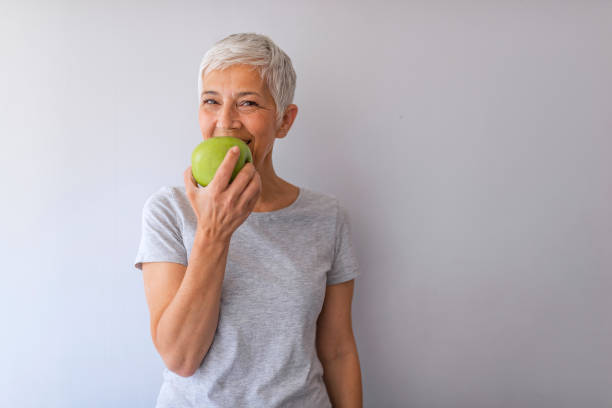Eating Well For Older Adults
Eating balanced, nutritional meals is a key to good health at any age. For seniors, eating well is especially important. A proper diet of the right foods helps seniors boost their energy, manage their weight and it can even control or prevent diseases such as high blood pressure, type 2 diabetes, osteoporosis, heart disease and other serious afflictions.
Aging and Nutrition
As people age, their nutritional needs evolve. The reason why is because as we grow older, our metabolism slows down and the way our bodies process food changes. Loss of muscle mass and bone density are common problems that arise and unhealthy shifts in essential hormone and vitamin levels can occur.
Changes in a senior’s lifestyle can also impact their nutritional needs. Older adults tend to be less active which means their bodies are unable convert food into energy with the same efficiency as when they were much younger. When this happens, many seniors will gain weight with some becoming obese, each condition being a potentially serious health hazard.
Plan A Healthy Senior Diet
Aging gracefully is never a given, but the odds of maintaining a healthy mind and body can be leveraged in your favor by smart dietary management. Eating whole, natural foods is recommended because processed foods can be more difficult to digest and are generally less nutritious. Fruits, vegetables, good proteins, and fiber-rich foods can supply seniors with almost all the essential nutrients they need for good health. If you are uncertain what foods fall into what categories, schedule a consultation with a nutritionist who can help simplify and customize meal planning according to a senior’s unique dietary needs.
It’s also smart to discuss senior meal planning with a physician. Certain medications can impact appetite and some illnesses alter the way bodies process food, so learn the facts about what type of meals work well and which ones should be avoided.
Make Meal Planning and Preparation a Social Activity
If you are caring for a senior, meal planning and preparation is an important, everyday responsibility. Many older adults tend to overeat or not eat enough because of changes in their lifestyle. Some are struggling with issues of loneliness or depression and mealtime is a great opportunity to get them more socially engaged.
A great way to do this is by inviting family members, friends, and neighbors to the home as often as possible to dine and socialize with a senior. Many older men and most women enjoy food shopping and cooking, so encouraging seniors to participate in their own meal planning and preparation is another great way to help reinforce their sense of living independently.
Find Help When Necessary
All seniors want to live as independently as possible. If their health enables them to live alone but their mobility is limited, educate them about all the options they have that makes food shopping and cooking easier.
Most supermarket chains allow for online shopping and it’s so simple that even non-tech savvy seniors can easily order up their groceries using a smart phone, tablet, or home computer. For those times when take-out dining is preferred, delivery services such as GrubHub, Door Dash and Ubereats can bring in a nutritious, tasty meal with zero inconvenience to the senior.
While some seniors might initially be resistant to shopping for and ordering in food virtually, most become quick converts to the technology when someone takes the time to show them how it works.
Don’t Forget Hydration
When caring for a senior, be aware of their fluid intake. Older adults can dehydrate faster so it’s important to make sure they drink plenty of water before, during and after their meals. It’s estimated that about 40% of seniors are chronically under-hydrated and this can lead to serious health problems including urinary tract infections, kidney problems, falls and more. When people grow older, they become less sensitive to the sensation of thirst which is why it’s important for seniors to be reminded to drink enough fluids.
Be Observant
Eating right makes living well possible for older adults. If you notice dramatic changes in how a senior is eating, call their physician. The reason why they are eating less or more can be a symptom for something that requires prompt medical attention, so don’t hesitate to get advice if you’re uncertain about what’s happening.
Eating healthy as we grow older doesn’t have to be difficult. If you know the facts about how to choose the right foods, portion them correctly and drink plenty of water, the golden years can be a happy and healthy time.


